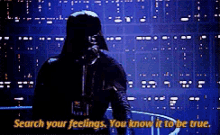🚦 3-2-1 Traction — the impact on creativity of smelling your own farts
Also in this issue: procrastivity, data from customers, Validated learning, how not to waste your life, and what we can learn from Ikea.
Hey friend 👋
I’m pivoting with this newsletter to create even more value for you:
Instead of one long-form essay, each issue will have three big ideas from me, two curated ideas from others, and one big question for you — all to help you find traction for your startup.
I’m dubbing it 3-2-1 Traction. Let me know what you think!
Reading time: 4 minutes.
I. three ideas from me
Most things we do that feel productive are just postponing the things that really are productive.
I call it “procrastivity”, and none of us are immune.
But it prays on founders the most:
Setting up perfect workflow in Notion (instead of doing the tasks it manages);
Reading books and attending how-to workshops (instead of talking to customers);
Designing and re-designing websites (instead of finding traffic for it);
Building pitch decks to get funding from investors (instead of sales from customers).
Even building an MVP instead of proving there’s a need for one.
They’re things that you’ll probably do eventually, and so they allow you to check off boxes on your to do list, but they don’t get you any closer to achieving your goal.
So why do we do them?
Because doing things that matter carries the risk of failure, the prospect of failure creates resistance, and humans are predisposed to follow the path of least resistance. See also The War of Art.
So we naturally push into the future the soonest point we can potentially experience failure or rejection. But we can’t just do nothing, because that’s just a different kind of failure.
Instead, we invent things to work on that feel like we’re making progress, but are just helping us avoid the work that determines whether we’re making progress.
To our primitive brains, this seems win-win — even though it’s lose-lose.
That naturally leads to the question: how do you know what the most important thing to do right now is?
Honestly, I think we usually already know.
But if you want razors, I’ve got razors! 👇
If you’re not collecting data from the marketplace, you’re probably wasting your time.
This is JDM’s First Principle of Entrepreneurship.
This is the simplest razor to use.
When considering the myriad things on the never-ending task list of a startup founder, rank them by two factors:
How much data from customers will you get by completing this task?
How fast can you get that task done and get data back from it?
Then throw them on a simple plot:
Those that won’t result in the acquisition of data from the market will float along the bottom — we can (usually) safely ignore these. The rest are worth considering.
But that upper right corner?
The most important task at any moment is that which will have the greatest immediate impact on the flow of customers through the business model at that moment.
All businesses look different, but we can describe their flow of customers the same way:
Awareness
Acquisition
Activation
Revenue
Retention
Referral
Aaarrr!!! The pirate metrics!
Think of each as levers you can pull to try to increase the flow of customers from one stage to the next.
This is often where we find procrastivity — e.g. founders try to optimize retention before they have customers to retain.
So: which lever can you pull that will move the most customers right now?
It is also, not coincidentally, where you usually find your riskiest assumption — and a founder’s job is always to test their riskiest assumption. Weird, right?
I call this the Flow Razor, and I’ve talked about it before.
🏅By the way — these three big ideas are actually just the same big idea said three different ways. You get bonus Founder Points if you reply and tell me why.
II. two ideas from others
It’s common — even cliché — startup advice to avoid perfection:
Ship early, ship often.
Don’t launch too late.
Done is better than perfect.
But this isn’t just for startups — it’s a good way to live, too.
If we strive for the perfect life — for our “best life” — we can completely miss the life we’re already living. Or, as the late Thich Nhat Hanh put it: present moment, wonderful moment.
It’s dangerous to sniff your own farts.
The IKEA effect says we tend to value products we self-assembled more than comparable products we did not assemble — to the tune of 63%.
It kills creativity, and it’s one reason founders fall in love with their ideas.
It has two practical side effects:
Sunk cost fallacy. We devote more resources to failing projects because we’ve already invested a lot.
“Not invented here” syndrome. We quickly reject external solutions as inferior to our own, simply because we didn’t invent them.
The solution?
Acknowledge the bias, talk to customers, and prototype rapidly.
Weird, right?
III. one question for you
What’s the single most productive thing you can get done this week to bring you closer to your goal?
Mine is to film two new video series on my TikTok. So stay tuned!
What’s yours?
Ready to take the next step?
I have free office hours every week; coaching for founders looking for early traction; and design sprints to help you get from Seed to Series A.




